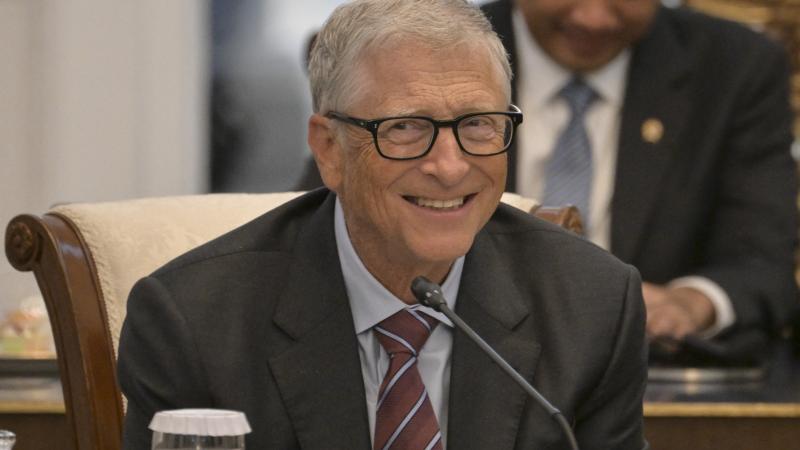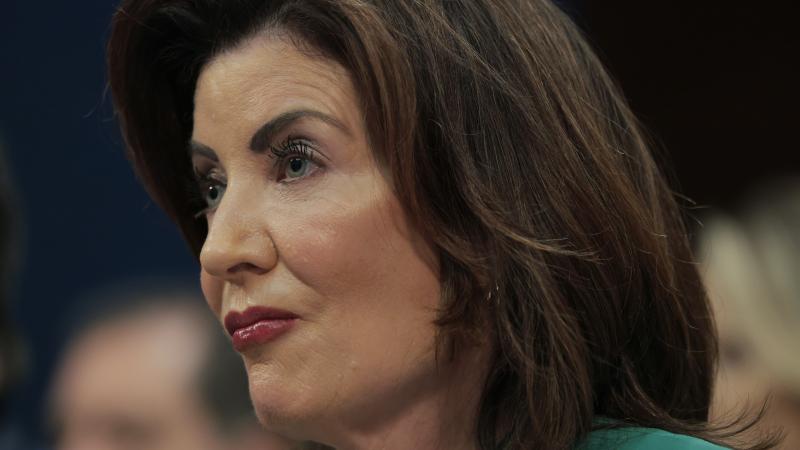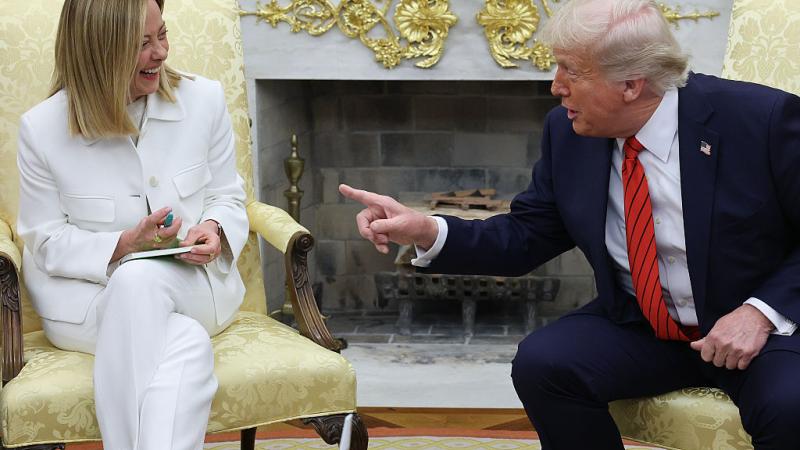Conservative revolt over McCarthy debt deal halts House votes indefinitely: 'We hold the floor'
Roughly 12 House conservatives are behind the revolt.
The conservative revolt in the Republican-led House is continuing, effectively shutting down voting on the chamber floor in a stark rebuke of Speaker Kevin McCarthy and the debt-ceiling deal he brokered with President Joe Biden.
"House Leadership couldn’t hold the line. Now we hold the floor," Florida GOP Rep. Matt Gaetz, a ringleader in the revolt, declared.
Roughly 12 House conservatives are behind the revolt, which started Tuesday when they voted "no" on a procedural rule to pave the way for a final vote on at least one prized GOP bill – to stop the Biden administration's efforts to curtail the use and sale of gas-power stoves over pollution concerns.
It was the first time a procedure rule vote for debate had failed in more than 20 years.
Gaetz was among the final House Republican holdouts in allowing McCarthy in January to become speaker, in a dramatic, televised showdown on the House floor in which Gaetz in the 15th-and-final round of balloting switched his vote to "present," allow McCarthy to become speaker.
However, in exchange for support from the House's most conservative wing, McCarthy agreed to chamber rules that allow his conference to keep him on a short leash, including one that would allow just one member to call for his removal and that was exercised quickly after the McCarthy-Biden deal on May 28.
On Wednesday, GOP leadership was forced to cancel all votes for at least the remainder of the week as a result of the standoff.
However, McCarthy said he wasn't afraid of losing his leadership post.
"I’m not worried about the rule," he said. I’m not [worried] about the speakership or anything else. If you’re worried about those things, you’re never going to govern."
Gaetz in recent days has also referred to McCarthy as an "imperial speaker" whom he says when negotiating with Biden tried to punish conservatives who objected to the deal. Among their concerns was that McCarthy had not extracted enough spending cuts in exchange for their votes to lift the ceiling.
Arizona GOP Rep. Andy Biggs, a member of the House Freedom Caucus, posted a video to his account Tuesday evening saying why he also "turned up the heat," including that the debt ceiling measure had become a "Democrat bill."
"It was a majority of Democrats who voted with a plurality of Republicans," said Biggs who also accused McCarthy of forming a "coalition with Democrats" and suggested the standoff is a test to show whether the speaker is "sincere" about forming a "Republican coalition."
Texas GOP Chip Roy on Tuesday on the House floor criticized Republican leadership for not including the pro-gas stove measures in the debt agreement. The bill that failed to clear the procedural hurdle Tuesday was one of two scheduled for a vote this week.
"We should be serious about forcing votes to get it done," Roy said prior to shooting down the procedural rule.
Gas stove regulations first became a fiery topic in January after it was reported that Biden’s Consumer Protection Safety Commission cited health concerns about the appliances.
Supporters of measures to regulate gas stove cite air pollution when they are in use. Critics disagree with the extent of health concerns and argue Americans should have consumer choice, since many cannot afford a new electric stove.
Agency Commissioner Richard Trumka Jr. said the stoves are a “hidden hazard” and that “products that can't be made safe can be banned." The agency says it is now "gathering data and perspectives" before making any decisions.
At about the same time, the Energy Department issued a notice of a proposed rule that would put limitations on how much energy gas cooking tops may consume in a year. It was followed by an analysis from the agency that concluded about half of gas stove models now sold in the U.S. won’t comply with a new efficiency regulation on cooking appliances.
Arizona GOP Rep. Debbie Lesko, who has introduced one of the bills, the Save Our Gas Stoves Act, said the measure is a response to the federal government’s “blatant attack on consumer choice."
Follow Addison on Twitter.
The Facts Inside Our Reporter's Notebook
















